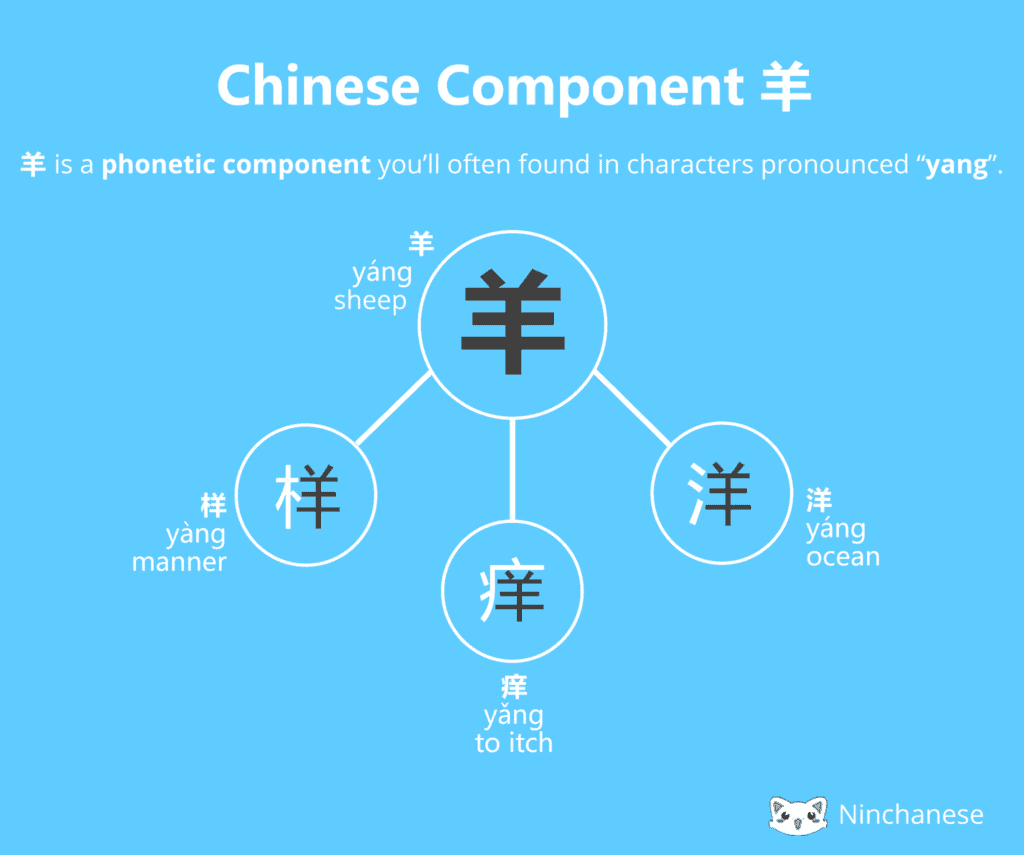The Chinese character 羊
And its component form
羊
yáng
- sheep
- surname Yang
羊 is both a character and a character component

羊 can be used as a phonetic component in a Chinese character. You’ll find the Chinese character component 羊 in characters and words pronounced “yang”.
These characters all contain 羊 and sound like “yang”:
When used as a character component, 羊 can also be found in words that are not pronounced “yang”. And sometimes these words’ pronunciation is far from the “yang” sound. So you need to pay attention to these exceptions.
The Chinese language is over 5000 years old, so, unsurprisingly, some characters’ pronunciations have evolved a little over time. Characters containing 羊 have, most of the times, the same tone: yáng. But sometimes, their tone can change.
In some Chinese characters which contain 羊, it will therefore sometimes have a pronunciation close to the sound 羊 like “liang” or “xiang” but not quite the same. You’ll also find characters that contain 羊 and are pronounced “ge” or “mei”.
The most used exceptions
You can find the character component 羊 being pronounced differently in words like:
美 měi: beautiful
糕 gāo: cake
差 chà: poor; wrong; lacking of; to fall short of
祥 xiáng: auspicious; propitious
You’ll also find the phonetic component 羊 in many other Chinese characters. Browse the full list here.
All 80,000+ Chinese characters share the same character components. Chinese character components are therefore essential for Chinese learners: they are the building blocks of Chinese. Character character components help tremendously with understanding a character: they provide information on its meaning or on its pronunciation. In short, knowing character components will help you analyse, learn and remember each Chinese character much better.
Join us on Ninchanese as we teach you everything about the Chinese character components you need to know, little by little.
